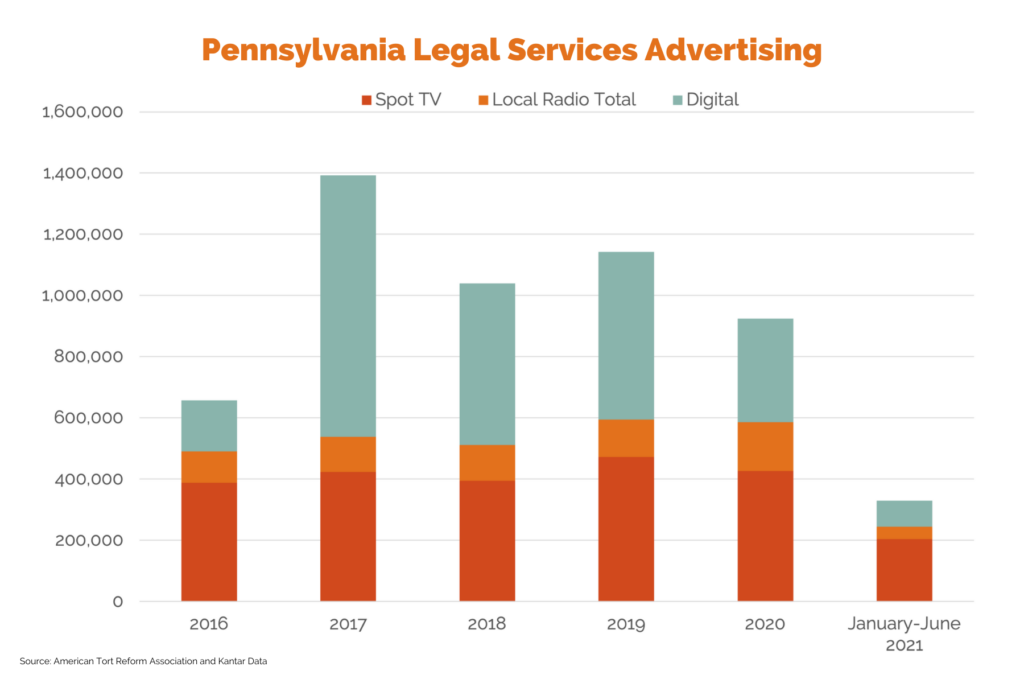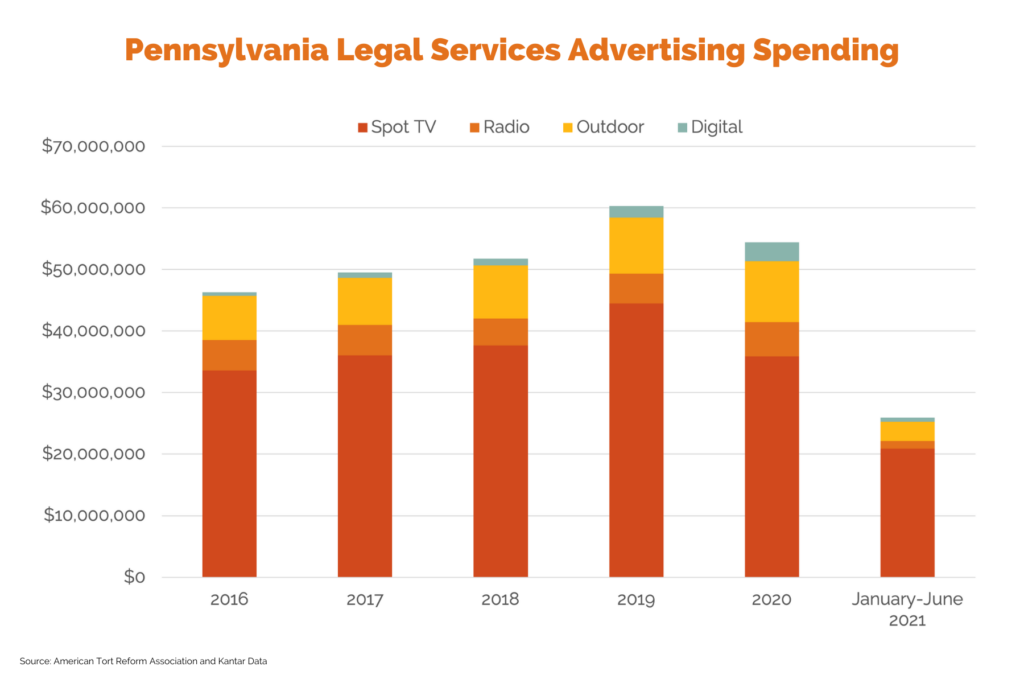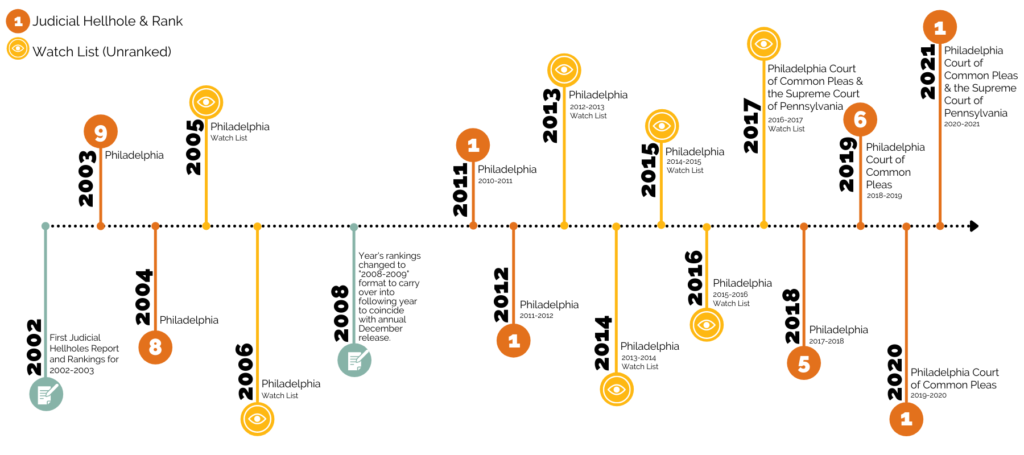Top Recurring Issues
Mass Torts, Forum Shopping and the Complex Litigation Center
Over the past decade, Philadelphia has become a prime location for plaintiffs’ attorneys to file product liability litigation claims from around the country, particularly against pharmaceutical and medical device manufacturers. But this upsurge was, at least somewhat, intentional.
The trouble seems to have arisen after Judge Sandra Mazer Moss, the founder and first Supervising Judge of the Complex Litigation Center (CLC), replaced Judge Allan Tereshko as coordinating judge of the mass tort program in 2009.
In 2009, the Court of Common Pleas President Judge Pamela Pryor Dembe undertook a “public campaign to lay out the welcome mat for increased mass torts filings.” (Amaris Elliott-Engel, Common Pleas Court Seeing More Diabetes Drug Cases, Legal Intelligencer, Mar. 19, 2009.) The reported goal of this effort was to make the CLC more attractive to attorneys to “tak[e] business away from other courts.” (Amaris Elliott-Engel, For Mass Torts, a New Judge and a Very Public Campaign, Legal Intelligencer, Mar. 16, 2009) (quoting Common Pleas President Judge Pamela Pryor Dembe).
Plaintiffs from across the country continue to flock to the Court of Common Pleas because of its reputation for excessive verdicts and its “open door” policy to out-of-state plaintiffs. This policy clogs the courts, drains court resources, and drives businesses (and jobs) out of the state.
At the crux of the venue issue is the state’s venue rule, which judges have interpreted very liberally. It permits venue in any “county where it [a corporate defendant] regularly conducts business,” which allows cases to be filed in Philadelphia even when there is little to no connection between Philadelphia and the incident in question.
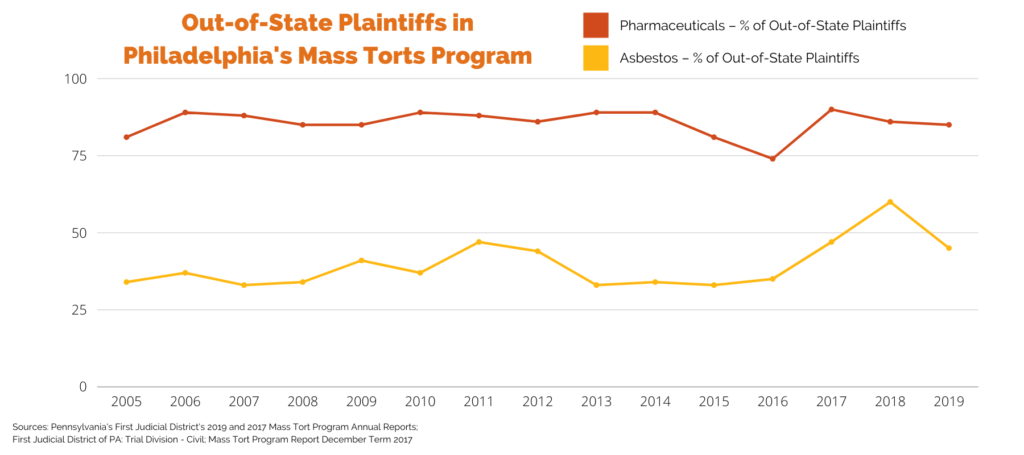
In early 2012, Administrative Judge John Herron acknowledged an explosion of mass tort cases in Philadelphia, withdrew the judiciary’s open invitation for out-of-state claims, and instituted significant procedural reforms. As a result, new mass tort filings fell 70%, from 2,690 in 2011 to 813 in 2013.
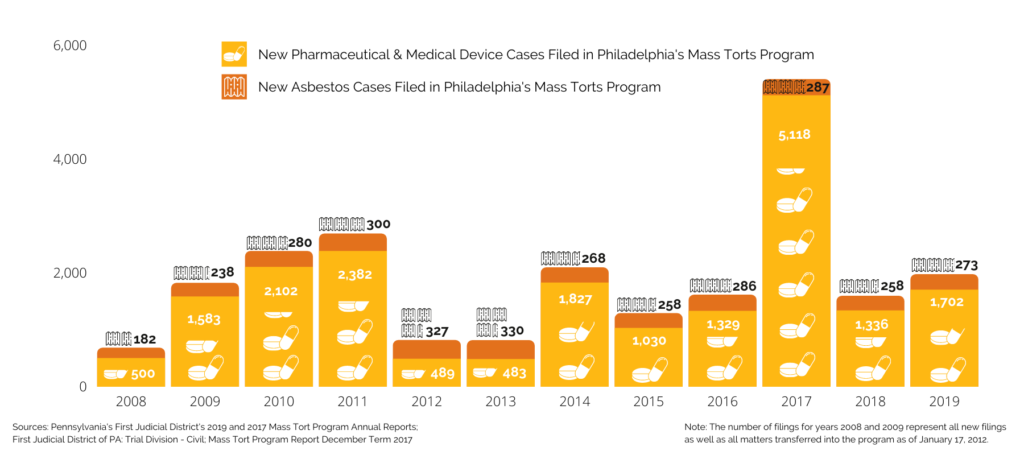
However, pharmaceutical litigation in Philadelphia’s mass tort program exploded in 2017. More than 5,000 product liability cases targeting prescriptions drugs were filed that year, with Risperdal filings accounting for a shocking 82% of all mass tort filings and Xarelto filings making up 8%.
The Philadelphia Court of Common Pleas was propelled to the top of the 2019 Judicial Hellholes list by an outrageous $8 billion verdict against a Johnson & Johnson subsidiary, Janssen Pharmaceuticals, in a single-plaintiff Risperdal case. The presiding judge decreased the award to $6.8 million in 2020.
In September 2020, the Supreme Court of Pennsylvania refused to review a $70 million verdict awarded to a Tennessee plaintiff who chose to file his lawsuit in the Court of Common Pleas. Outsized verdicts like these reinforce the Philadelphia Court of Common Pleas’ “open door” policy and encourage plaintiffs’ lawyers across the country to flock to the court.
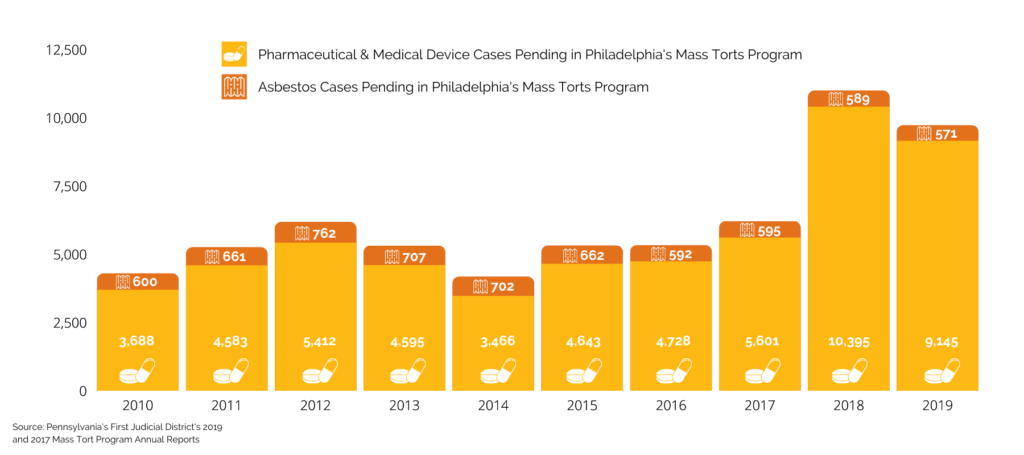
Timeline of Key Dates
2004 (Asbestos) – In February 2004, the Supreme Court of Pennsylvania struck down legislation that protected companies that were never involved in the manufacture, sale, or use of asbestos or asbestos-containing products from unlimited liability due solely to their acquisition of a company with some such past activity.
2009 – Judge Sandra Mazer Moss, the founder and first Supervising Judge of the CLC, replaced Judge Allan Tereshko as coordinating judge of the mass tort program in 2009
2012 – On February 15, 2012, Administrative Judge John Herron acknowledged an explosion of mass tort cases in Philadelphia, withdrew the judiciary’s open invitation for out-of-state claims, and instituted significant procedural reforms. Judge Herron signed off on General Court Regulation No. 2012-01, which, among other positive steps, eliminated reverse bifurcation, limited consolidation in all mass tort cases, including asbestos cases, and limited the number of cases that can be tried by out-of-state attorneys annually.
2017 (Pharmaceuticals) – Pharmaceutical litigation in Philadelphia’s mass tort program explodes; More than 5,000 product liability cases targeting prescriptions drugs were filed that year, with Risperdal filings accounting for a shocking 82% of all mass tort filings and Xarelto filings making up 8%.
2018 (Asbestos) – In keeping with the Court of Common Pleas’ “open door” policy, the number of out-of-state plaintiffs who brought asbestos cases in 2018 increased from 47% to 60%.
2020 (Asbestos) – In a year when total asbestos lawsuit filings were down 13%, Philadelphia was one of the few jurisdictions that saw an increase in filings through the first two quarters of 2020. There was an 11.7% rise in asbestos litigation in Philadelphia through July 2020.



